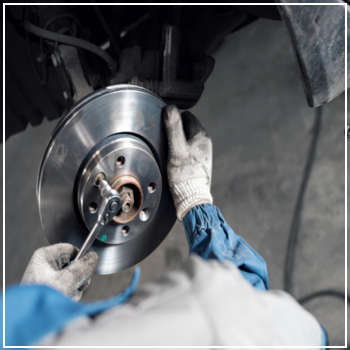Several elements contribute to increased wear on your brakes: Unlike other routine maintenance tasks, there isn't a fixed mileage schedule for brake replacements. However, checking your owner’s manual is always a good idea, especially during regular service visits such as oil changes or tire rotations, which typically occur every six months. A typical driver might expect to replace their brakes around 50,000 miles. However, depending on factors like terrain and driving style, this could vary significantly. For instance, someone in a hilly urban area might need replacements closer to 25,000 miles, whereas someone cruising through rural landscapes might stretch it to 70,000 miles. Considering all these aspects, here are some key indicators that it’s time for brake maintenance: If you’re experiencing any of these symptoms, don’t delay seeking professional help. DaSilva’s Auto Body offers reliable brake diagnostics and repairs at competitive prices. Give us a call at our Naugatuck location to book an appointment today! Remember, neglecting brake maintenance not only poses risks to yourself but also affects others sharing the road. Regular checks ensure peace of mind while driving and help avoid costly repairs down the line. Card Friction Feeder,Card Sorting Machine For Postcards,Mix Page Machine For Postal Card,Id Card Sorting Machine Dongguan Chanfer Intelligent Packing Technology Co., Ltd. , https://www.chanfer.com If you notice a high-pitched squeal or screech coming from your vehicle's brakes, it’s a clear sign that they're nearing the end of their life and could compromise your safety on the road. This kind of excessive wear can also impact other components like calipers, brake pads, and rotors. So, what should you be thinking about doing next?
If you notice a high-pitched squeal or screech coming from your vehicle's brakes, it’s a clear sign that they're nearing the end of their life and could compromise your safety on the road. This kind of excessive wear can also impact other components like calipers, brake pads, and rotors. So, what should you be thinking about doing next?Factors Contributing to Wear
Understanding Mileage Expectations
Recognizing Warning Signs
How Often Does Your Vehicle Need Brake Maintenance?
